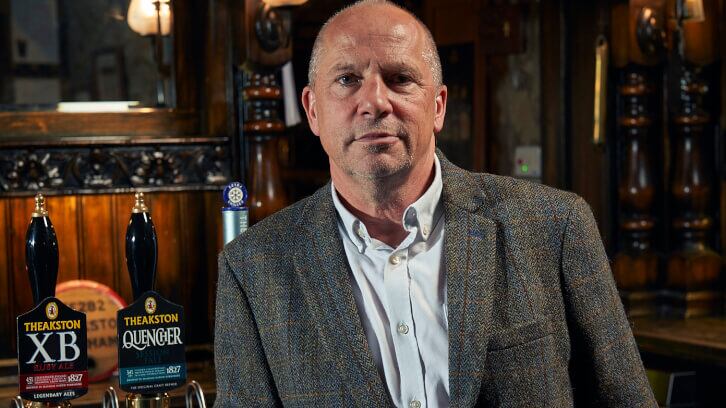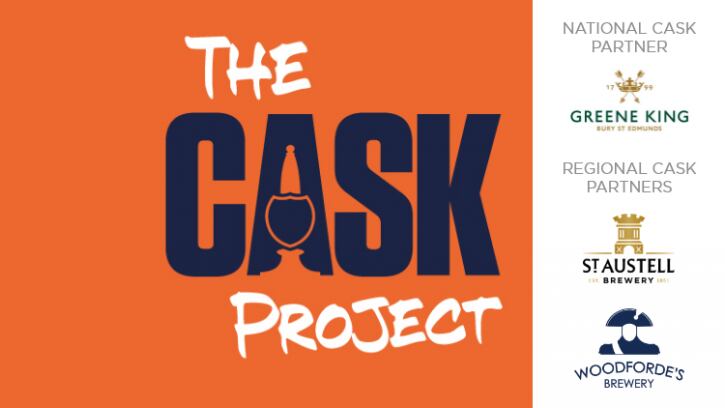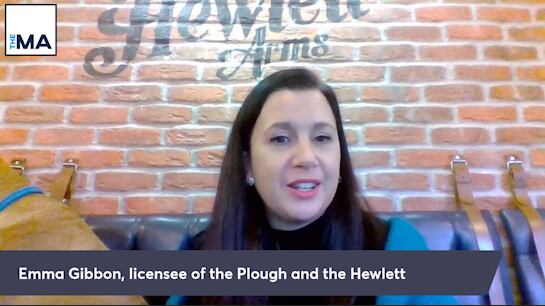Bradbury told The Morning Advertiser the Yorkshire-based brewery had seen a “decent trading period” despite a challenging economic landscape, adding Theakston’s flagship beer, Old Peculiar, had seen year-on-year growth for the last three years.
“The market has been tough, we're operating in perhaps some of the roughest sub-categories of the beer market in cask ale, premium bottled and traditional keg ale, but we've actually had a good run in those categories.
“Our biggest brands are in growth. Even in a challenging cask market there's been premiumisation which has helped us.
“Last year our cash volumes grew by about 5% year on year, so we've been pleased with that.
Different approach
“There's been too much doom and gloom talked about within the cask market; we're much more positive about it.”
The managing director attributed the brand’s cask success to its commitment to consistency and a more positive attitude towards tradition within the category, as opposed to “reinvention”.
“We had the fresh cask initiative and a desire to put multi coloured taps on and that sort of thing but actually, the beers that have been doing best have been some of the more traditional beers.
“Our own Theakston’s beers have been doing very well, Timothy Taylor Landlord has been doing very well. We haven't had to dress those up in different ways.
“Focusing on quality, consistency and core values has been important. Consumers have been seeking that out alongside, to some degree, tradition”, he said.
In addition, Bradbury explained Theakston’s also took a “different approach” to duty changes in August last year to bolster the consistency of its offering.

He continued: “Some of the bigger brewers brought their bigger brands down to 3.4% ABV but we kept our main beer, Theakston’s Best, at 3.8% ABV and saw
a big uplift in demand for it from customers who didn't want to see their beer brand changed.
“We then launched our own 3.4% ABV beer as a brand-new brew. Doing that gave us the flexibility to create a new beer rather than trying to replicate the flavour it used to have but at a lower strength and proved a successful strategy for us.”
Data from CGA showed while the actual volume sales for cask ale fell by 5.7% in 2023 compared with 2022, an average of 40,387 outlets stocked a cask ale, which only declined by 2.9% and was ahead of total draught beer’s decline of 3.8%.
In addition, £1.1bn was spent on cask ale in the on-trade over the course of 2023, accounting for 9.6% of draught beer volumes.
"There's still a central role for pubs and consumers love for it, which is something I think is important and we should continue to celebrate and support"
While this was down slightly against the previous year, CGA said the category had seen an “improved performance” at the start of 2024, with industry initiatives on pricing and quality key for “restoring faith” in cask.
Though Bradbury told the MA the biggest challenge brewers have faced is getting the price right for pubs and consumers, adding it has been a “difficult tightrope to walk” for brewers and many have not “got it quite right” over the last couple of years.
“As brewers, we have had big cost pressures in the supply chain over the last couple of years coming out of Covid, the war in Ukraine with grain costs and energy costs, labour costs.
“At the other end, consumers disposable income has been squeezed and pubs have been caught in the middle of that.
“They've had suppliers who've had to pass on cost to them, consumers that are short of money and then they've got their own cost pressures with their own energy costs and big increases in labour costs and rates and all the rest of it.
“We've been quite conservative around price increases, but we have had to pass some of those cost pressures through, but we deliberately try to avoid big increases and will continue to do so”, he explained.
Unnecessary complexity
To aid growth across both industries, Bradbury urged the Government to ensure a clear and “constant platform” for businesses in the future regarding everchanging legislation, which he said has caused “a huge amount of complexity”.
“If I was operating lots of pubs, I'd be concerned about business rates and the potentially the increasing duty differential between draught and packaged beer.
“But as a brewer, the things that concerns us are the constant changes in legislation, such as deposit return schemes or packaging waste and the lack of clarity around them, particularly between the different Governments across the UK and EU.
“The biggest challenge for businesses over the last few years with Brexit, Covid, Ukraine and other economic circumstances has been the lack of ability to plan for the long term.
“If you overlay that with unnecessary changes of legislation, that just causes a level of complexity we could all do without.”
Though Bradbury said he remained “optimistic” for the future and confident in the fact consumer demand for pubs and cask would continue.
“However challenging times can be for the industry, there's still a central role for pubs and consumers love for it, which is something I think is important and we should continue to celebrate and support.”
- Read Richard Bradbury's Big Interview with us here





